Concern, Ireland’s largest humanitarian aid agency, has been serving the poorest of the poor for 50 years. Ed Kenney Jr. and Kieran McConville, both of whom work for Concern, explore the organization’s history.
℘℘℘
The story begins 50 years ago in the parlor of a modest townhouse on Northumberland Road in Dublin, moving on quickly to a 600-ton cargo ship called the Columcille, then to a remote island off West Africa, the hub of a daredevil outfit known as “Jesus Christ Airline,” and finally to a darkened landing strip manned by fearless Irish priests, among whom were two brothers – one would go on to be called “The John Wayne of aid workers;” the other would gain a reputation for taking on poverty and injustice with the force of a “19-stone rugby tackle.”
It’s the story of Concern Worldwide, one of the world’s most respected international humanitarian and development organizations, which last year worked in 26 countries, helping 22 million people.
Concern’s reach is global, but its Irish roots are strong.
In 1967, the province of Biafra attempted to secede from Nigeria. The Nigerian army responded with unmerciful force, displacing millions of people who became further isolated by the government’s blockade of food, medicine, and basic necessities. In 1968, famine followed.
Images of starving, skeletal children flashed across televisions and newspaper front pages worldwide, and in Ireland, it touched on the deep scars of the starvations of the 1840s.
A small group of people, alarmed by the sheer human suffering, got together in the home of John and Kay O’Loughlin Kennedy, a young economist and insurance underwriter, who opened their Dublin townhouse on Northumberland Road to those like them who wanted to do something.
Without any clear idea of what could be done, the assembled group decided to call themselves Africa Concern. Within weeks, they launched a first-of-its-kind fundraising campaign. The Irish people responded in force. In less than one year, the equivalent of more than $6 million, roughly $2 for every person in the Irish Republic, was raised.
As the money flowed in, the group enlisted experts to help engineer a solution for the delivery of life-saving relief supplies around the blockade. First, they secured a boat – the Columcille – that would be loaded with food and medical items, and sailed to the island of Sao Tome, off West Africa. From there, they relayed the goods via a constant flow of bold, nighttime airlifts.
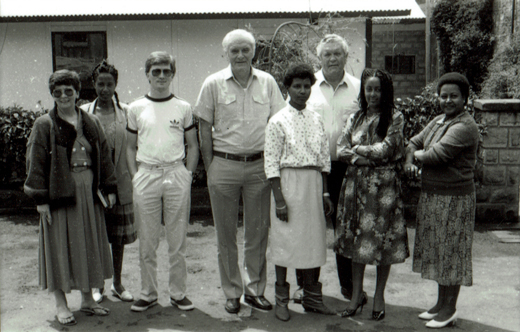
Africa Concern’s partner, the cross-denominational Joint Church Aid founded by Fr. Tony Byrne, a Holy Ghost missionary priest, secured a small fleet of old cargo planes and a crew of daredevil pilots, who gave it the name “Jesus Christ Airline.” It was a rag tag corps motivated by their shared refusal to let millions die on their watch. Their collective response became known as the Biafran Airlift.
In two years, they flew 5,314 missions from Sao Tome, carrying 60,000 tons of humanitarian aid as Nigerian anti-aircraft guns and fighter planes tried to bring them down. In all, 25 pilots were killed but millions of lives were saved.
On the receiving end, manning a rudimentary airstrip hidden deep in the bush, were Byrne’s fellow priests, Aengus and Jack Finucane, brothers from County Limerick who did literally whatever it took, exhausting every logistical means to reach the people who needed aid the most.
Aengus often boarded the flights himself, demanding efficient and speedy loading and delivery, regularly ferrying out the most seriously ill children on the return trip. His “19-stone rugby tackle” reputation derives from a legendary encounter with a thief who attempted to rob a Concern delivery truck. Aengus reacted like the star rugby player he had been in his youth. His relentlessness was otherwise non-violent, as he led by “conversation not confrontation,” with healthy doses of self-deprecation and humor.
Meanwhile, Jack masterminded a vast and complex distribution network, which at its height was reaching roughly four million people a day with food and medical supplies.
Africa Concern’s founders began to see a much broader vision as famine ended. Some two million had died, but clearly millions of lives were saved. Events in other parts of the world soon demanded urgent attention. A cyclone disaster in East Pakistan (now Bangladesh) and civil war and refugee problems in Calcutta (now Kolkata) became the next intervention.
Over time, Africa Concern evolved into Concern Worldwide and its global identity was cemented through successive bold, practical, effective responses to major disasters in the succeeding decades: East Pakistan/Bangladesh in the early 1970s; famine in Ethiopia in 1973 and 1984; refugees along the Thailand-Cambodia border in the early 1980s; famine in Somalia in 1992; genocide, refugees, and cholera in Africa’s Great Lakes region in the mid-1990s; mass suffering in Sierra Leone and Liberia in the late 1990s; the mostly silent plight of millions in the Democratic Republic of the Congo in the early millennium through today; the 2010 Haiti earthquake; flooding in Pakistan and famine in Somalia in 2011; and the still raging, seemingly endless violence in Syria and South Sudan.
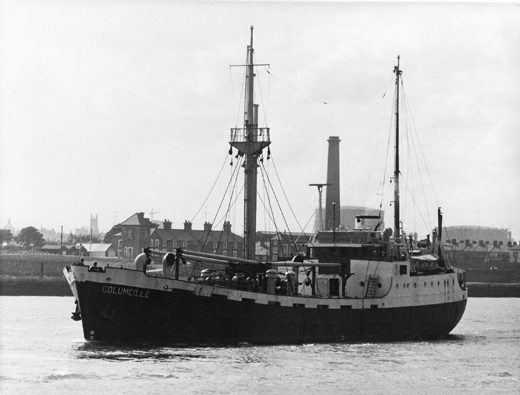
A telling case study unfolded in the crowded slums and remote forests of West Africa during the Ebola crisis that exploded across the region beginning in 2014.
Landing in Freetown, Sierra Leone, shortly before the outbreak was the new country director and Clare native, Fiona McLysaght. She had been there before as a young aid worker during the vicious civil war twenty years earlier.
Soon, Ebola was killing people indiscriminately and at a frightening rate, threatening to tear apart the very fabric of society. “There were bodies literally being left in the street,” she recalls.
McLysaght’s team had been focusing their work in education, agriculture, water, and sanitation. Ebola presented new, unimagined challenges. She decided they would pivot to managing and executing the most dangerous and potentially deadly work: safe removal and burial of the dead, whose bodies had become leading sources of infection.
She quickly steered the team to the task of body removal and transport, whether or not they were confirmed Ebola deaths. They also provided safe and dignified burials for over 16,000 of the dead. As often as possible, the graves were marked to allow family members to mourn in dignity. The Ebola crisis ended in 2016. Concern remains, helping ensure lasting recovery, health, livelihoods, continued growth, and development.
These mass disasters have punctuated Concern’s growth over nearly 50 years, but they have been matched by a commitment to responding to lesser-known, smaller-scale disasters and an ever-expanding breadth of comprehensive long-term development work.
Long recognized as a disaster response leader, Concern has also gained recognition – from the grassroots to governments to peer organizations – as a transformational force in nutrition, maternal and child health, community empowerment, gender-based violence, climate-smart agriculture, and primary education.
Addressing guests at a recent reception marking the 50-year milestone, Ireland’s President Michael D. Higgins said, “I would like to thank Concern most profoundly for all that you’ve achieved, not just for the work that you’ve done, but for the work you continue to do.” Over the course of its years, Concern has not only touched millions of lives but, as Higgins said, “it has crafted a vital bridge between the Irish people and some of the poorest people in our world.”
FATHER AENGUS, SIOBHAN WALSH, AND CONCERN U.S.
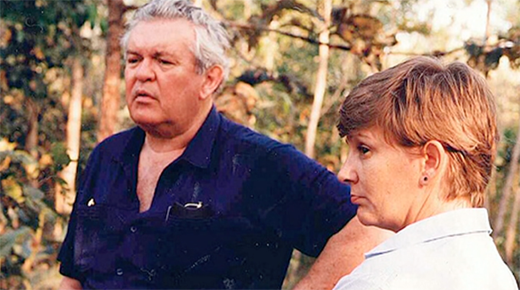
The Finucane brothers and former missionaries like them would be central to Concern’s early growth and future globalization. But they guarded its secular identity, as they themselves grew into dynamic, world-renowned, humanitarian leaders.
As director of many of Concern’s country programs over a 30-year career, Jack drove the professionalization of the organization, transforming a small organization of volunteers into a humanitarian force equipped with skilled agriculturalists, health specialists, educators, nutritionists, logisticians, and engineers.
U2’s Bono credits Jack with his awakening to the scourge of global poverty on a trip to Ethiopia together in 1985 to witness famine and Concern’s response. “The John Wayne of humanitarian aid” moniker was affectionately coined by Bono in recognition of Jack’s quiet, steely resolve to get the job done no matter who or what stood in his way.
Aengus, decidedly more charismatic, ascended from country director to chief executive of Concern in 1981, serving until his retirement in 1997. He was also instrumental in the establishment of a U.S. affiliate in the 1990s – Concern Worldwide U.S. – with fundraising and support offices in New York and Chicago.
Siobhan Walsh, eventual executive director of Concern Worldwide U.S., joined Aengus in New York early on as the operation got off the ground.
She recalls his advice, which harkened back to that Biafran airstrip: “Start before you are ready. Just start doing and the rest will happen.”
Those beginnings were humble, Siobhan recalls, “From our bucket collections in New York’s Grand Central Terminal, to peeling bags of spuds for special event dinners, to sleeping on couches in Chicago, all of it was part of a very colorful journey to set the foundation for Concern U.S.”
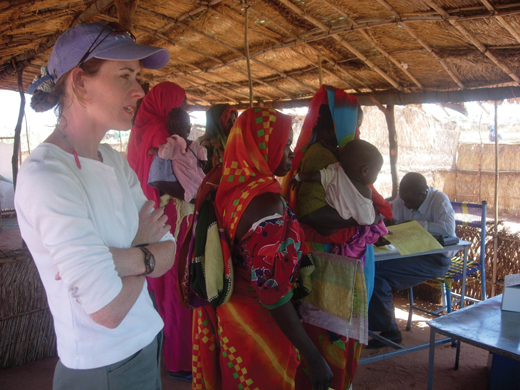
Today, Concern Worldwide U.S. has a staff of 50 in New York City and Chicago, supporting the mission and global efforts of Concern Worldwide by raising funds and providing technical and program support, advocacy, and public engagement.
Now annually generating nearly $40 million through a mix of individual donations large and small, foundation funding, and U.S. government grants, Concern Worldwide U.S. has been a sustaining force and has helped engineer groundbreaking programs in countries like Bangladesh, Ethiopia, Rwanda, Malawi, Pakistan, and others, driving innovations especially in nutrition, maternal child health, and emergency response.
Its growth has been powered by loyal, close-knit communities of donors, first in New York and Chicago, drawn in by the relentless charm and humanitarian authenticity of Fr. Aengus and Siobhan.
Mutual of America chairman and CEO, Tom Moran, experienced the Finucane/Walsh strategy firsthand. After the tragic and premature death of Concern’s first U.S. chair, legendary public relations executive, John Scanlon, Fr. Aengus and Siobhan approached Moran to take up the mantle.
“Being double-teamed by the two of them, I couldn’t say ‘no.’ Of course, I still would not have agreed without [fellow Mutual of America executive and Concern U.S. board member] Ed Kenney, who assured me that together we could make it happen.
“And, so it was that we recruited an incredible group of talent. Once we identified the right person, Aengus took the lead and Siobhan explained exactly what was needed from each of us. There was no escaping. Of course, we knew we had the support of an incredible group of professionals working in Dublin and in the field, so we could deliver results in return for support.”
After 20 years as chair, Tom Moran retired in 2017, passing the torch to board member Joanna Geraghty, executive vice president of customer experience at JetBlue, who remarked, “I’m inheriting the proud legacy of a group of one-of-a-kind leaders, namely Tom, Fr. Aengus, and Siobhan, who have touched millions of lives. I’m firmly committed to building on that foundation, continuing to grow our community of supporters, to innovate, and reach even more of those most in need.”
President of Concern Worldwide U.S., Limerick native Áine Fay, has been witness to the changing nature of the humanitarian landscape over the decades and reflects on the ability of colleagues across the globe to evolve and embrace innovative approaches. “Many of the fundamental challenges facing the extreme poor have not changed in 50 years, but the range of solutions available to us is greater now than at any time, and we are finding new and ever more effective ways to deliver not just aid – but opportunity.”
THE FUTURE OF CONCERN
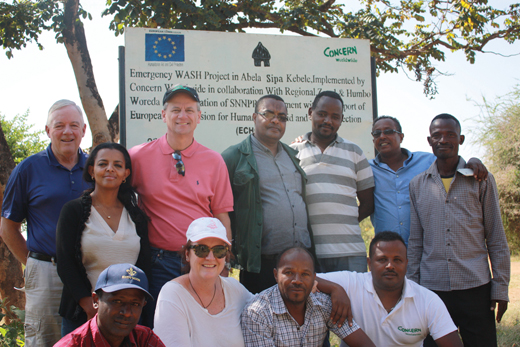
In recent years, a number of Concern’s founders have passed on. Aengus Finucane died in 2009, Kay O’Loughlin Kennedy in 2016, and Jack Finucane in 2017. But the animating and relentless forces that emerged from that Dublin townhouse in 1968 are as powerful as ever – in Ireland, the U.S., the U.K., in a new fundraising office in South Korea, and across the developing world.
In all, over half a century, Concern has worked in more than 40 of the world’s most disadvantaged countries. Today, there are nearly 4,000 workers of some 50 different nationalities working in 26 countries. The percentage of Irish staff on the ground is now very small, reflecting Concern’s commitment to transfer its work to local hands. Still, the ethos and the essence of the organization have been formed from roots that are 100 percent guaranteed Irish.
In the words of worldwide CEO, veteran aid worker, and Belfast native Dominic MacSorley, “Our stated mission is ‘to help people who are living in extreme poverty achieve major improvements in their lives – improvements that last and spread without ongoing support from us.’ And it’s that last part that’s the real key. We’re essentially in the business of putting ourselves out of business.”
It’s a thought that might not have crossed the minds of the O’Loughlin-Kennedys, the Finucanes, and the men and women who sacrificed and risked their lives to save lives in 1968, but it will guide Concern’s efforts from 2018 forward. The goal is to not mark another anniversary in 50 years’ time. ♦

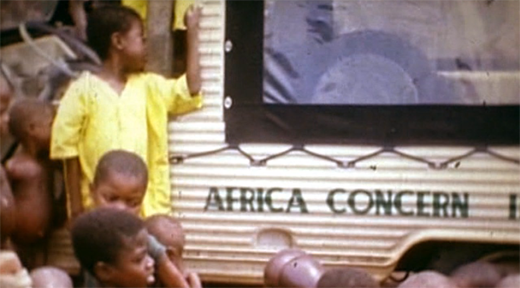

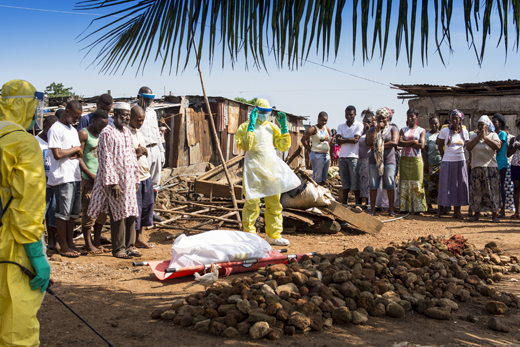


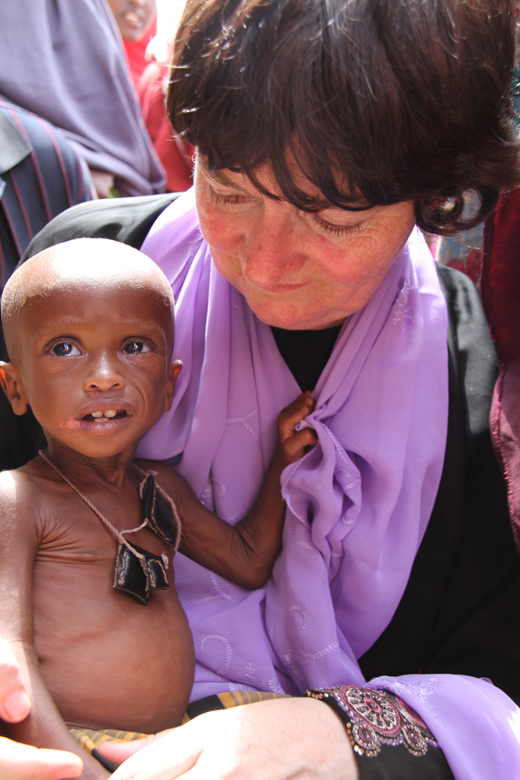
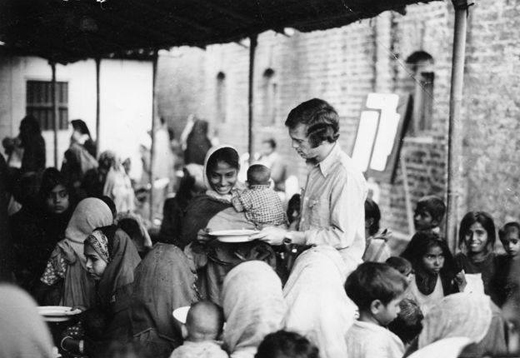


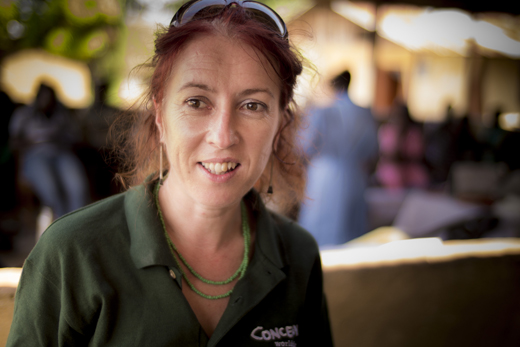
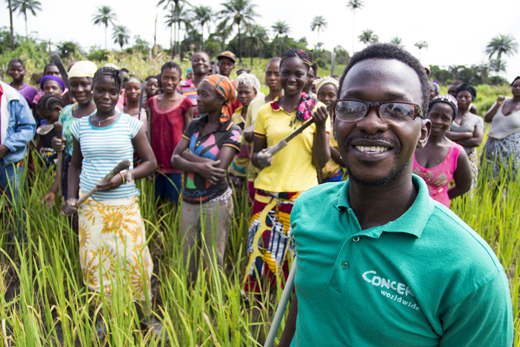
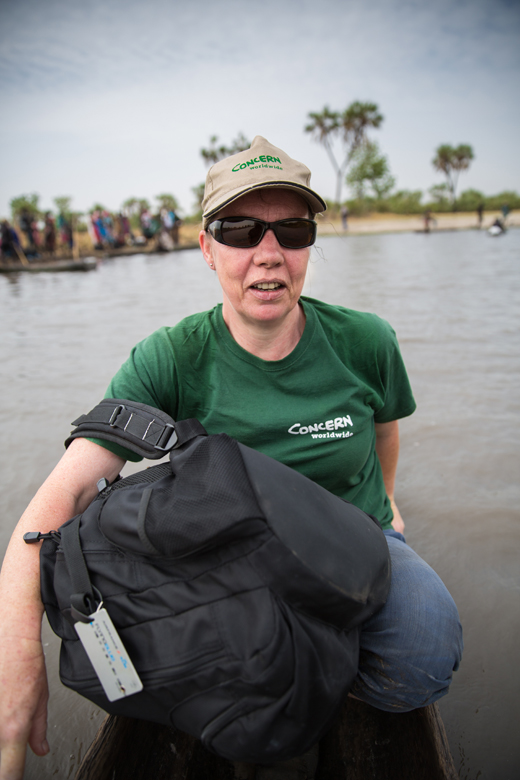
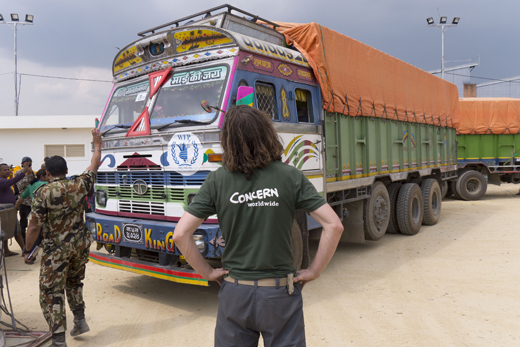


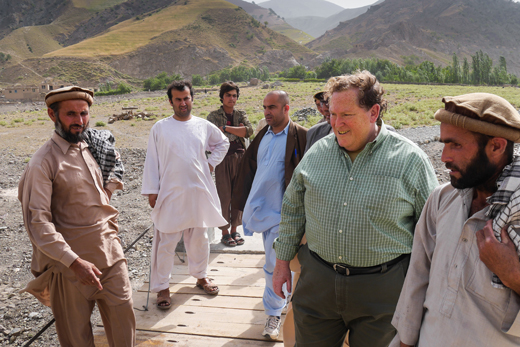

_______________
Ed Kenney Jr. joined Concern Worldwide U.S. in 2007 after a 10-year career in private sector communications. He previously produced documentary and entertainment programs for public television and joined the organization to help expand coverage of its work in the field. He also spent much of 2010-11 as a logistics coordinator in the Haiti earthquake response and in Malawi. Currently, he serves as vice president of communications in New York.
Kieran McConville is a photographer, filmmaker, and writer working for Concern Worldwide in New York. Originally from Limerick, he travels extensively to document the organization’s emergency response and development work in 26 countries in Africa, Asia, the Middle East, and the Caribbean. He previously spent two decades covering international and domestic affairs and human interest stories, primarily for RTÉ.
For more information on Concern, its global mission, and its upcoming events, see www.concernusa.org ♦

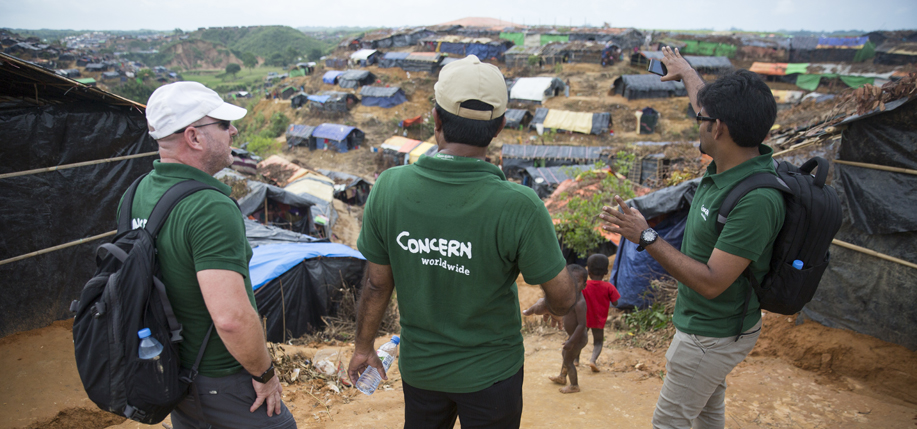
Leave a Reply